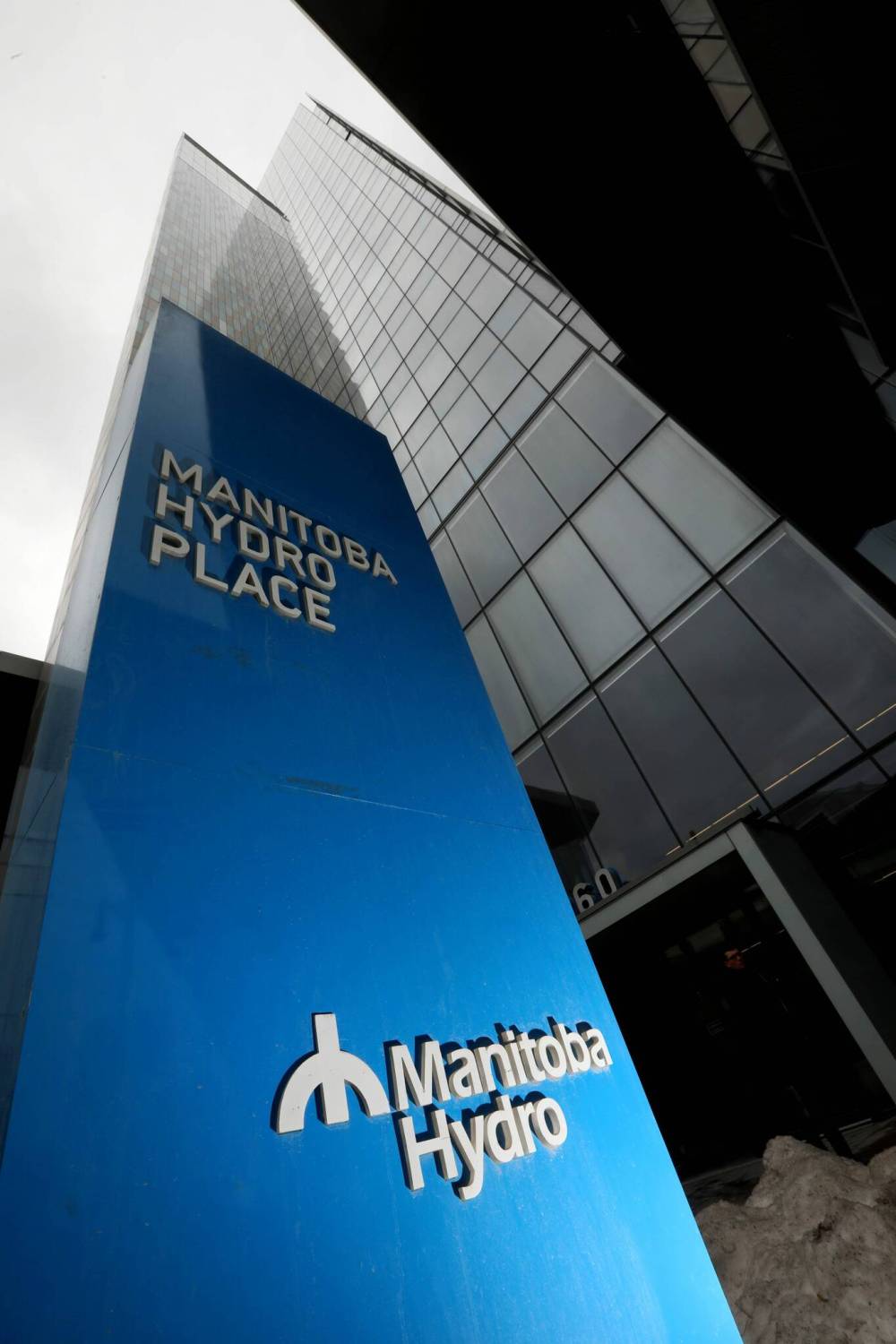Hydro rate freeze failure
Advertisement
Read this article for free:
or
Already have an account? Log in here »
To continue reading, please subscribe:
Monthly Digital Subscription
$0 for the first 4 weeks*
- Enjoy unlimited reading on winnipegfreepress.com
- Read the E-Edition, our digital replica newspaper
- Access News Break, our award-winning app
- Play interactive puzzles
*No charge for 4 weeks then price increases to the regular rate of $19.00 plus GST every four weeks. Offer available to new and qualified returning subscribers only. Cancel any time.
Monthly Digital Subscription
$4.75/week*
- Enjoy unlimited reading on winnipegfreepress.com
- Read the E-Edition, our digital replica newspaper
- Access News Break, our award-winning app
- Play interactive puzzles
*Billed as $19 plus GST every four weeks. Cancel any time.
To continue reading, please subscribe:
Add Free Press access to your Brandon Sun subscription for only an additional
$1 for the first 4 weeks*
*Your next subscription payment will increase by $1.00 and you will be charged $16.99 plus GST for four weeks. After four weeks, your payment will increase to $23.99 plus GST every four weeks.
Read unlimited articles for free today:
or
Already have an account? Log in here »
Hey there, time traveller!
This article was published 29/11/2023 (724 days ago), so information in it may no longer be current.
The NDP’s election pledge to temporarily freeze Manitoba Hydro rates was problematic from the start. Now, after only five weeks in government, the party may have to scrap its promise.
Manitoba Hydro released its second quarter financial report last week showing a projected deficit of $160 million for the 2023-24 fiscal year. That is a $610-million difference from an estimated $450 million profit the Crown corporation budgeted for at the beginning of the year.
Large swings in net revenue are not uncommon for the publicly-owned corporation. Hydro’s revenues are driven primarily by water levels. When they are low, as they have been this year, revenues fall because there is less water available for hydraulic power generation.

RUTH BONNEVILLE / WINNIPEG FREE PRESS FILES
The government shouldn’t interfere in hydro rates.
That reduces the company’s ability to sell electricity on the so-called “spot” export market, where most of Hydro’s surplus power is sold. Hydro relies on the sale of surplus power outside the province to keep local rates low.
Along with lower domestic demand and marginally higher expenses, Hydro is projecting expenses will exceed revenues this year. It is likely only a temporary condition. As water levels rise, so too will Hydro’s net revenues.
Over time, low-water years even out with high-water ones, allowing the utility to maintain positive net revenues in the long-term.
In the meantime, the Crown corporation must ensure pricing is sufficient to meet its immediate financial obligations. Electricity rates are set to ensure revenues cover expenses, including the company’s debt obligations, and maintain the required cash flow to support day-to-day operations.
Rates are approved by the province’s independent regulator, the Manitoba Public Utilities Board, which has the dual responsibility of protecting consumers from unwarranted price increases while ensuring Hydro has the revenues it needs to pay the bills. Any interference in that process by government can undermine that objective.
When a political party promises to freeze rates, as the NDP did during the recent provincial election, the independent rate-setting process is put in jeopardy. As part of its pledge to freeze rates temporarily (a key plank in the party’s “affordability” plan), the NDP promised not to interfere in the independent rate setting process. Rather, the party claimed, it would attempt to delay a rate increase by setting the right “conditions” for a freeze.
Specifically, it would reduce the amount it charges Hydro to guarantee its debt and lower the fees the utility pays to use the province’s water resources. Still, any attempt to influence the independent rate setting process would be an act of interference.
In light of Hydro’s projected deficit, NDP Finance Minister Adrien Sala suggested last week the rate freeze pledge may be delayed. “We’re not saying that we’re not doing it,” he told reporters when pressed about his party’s election promise. Instead, the NDP will “proceed with that commitment” at an undetermined time and through some undefined means, Mr. Sala said.
That could be problematic, given the state of the provincial government’s own finances. Premier Wab Kinew warned Manitobans last week there will likely be a larger provincial deficit this year than the previous government projected. If that proves true, the government would have fewer tools available to create the right “conditions” for a Hydro rate freeze.
Besides, a possible rate freeze at some undermined time in the future — perhaps two or more years from now — does not help Manitobans with affordability issues today. Government should look at alternative ways of helping those who are struggling the most with price inflation. It should do so without interfering in the province’s independent utility rate setting process.

